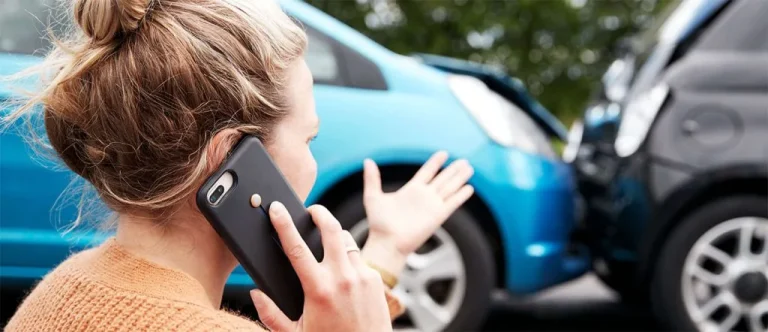There are few better things than taking a sunset cruise down one of the Sunshine State’s many palm-tree-lined roads, but there are a few things to keep in mind before hitting the highway. Whether you’re in St. Augustine, Clovered’s hometown of Fort Lauderdale or anywhere else in the Sunshine State, drivers must have Florida auto insurance.
Everything You Should Know About Florida Auto Insurance
When getting auto insurance in Florida, you must keep a few things in mind. Whether taking out an auto insurance policy for the first time, switching carriers, or shopping around for a new carrier, it’s always a good idea to do some research beforehand.
For example, you will want to ensure you get a policy that meets the laws and requirements for Florida. You might also want to make sure you’re getting the lowest possible cost for the best coverage that works for you.
Let’s look at what you need to know about getting auto insurance in Florida.
Florida Car Insurance Requirements
In Florida, it’s the law to have, at minimum, property damage liability and personal injury protection coverage on your auto insurance policy. The minimum amount of property damage liability in Florida is $10,000. The minimum amount of personal injury protection in Florida is also $10,000.
If you’re in an accident and have the minimum car insurance required by law, your insurer will help you pay up to $10,000 in property damage liability and personal injury protection. If you don’t have these required coverages on your auto insurance policy or don’t have auto insurance, you could face significant fines or even jail time for breaking the law.
Is Car Insurance Mandatory in Florida?
Auto insurance in Florida is mandatory, at least to some degree. Florida drivers must have, by law, a minimum of $10,000 in property damage liability and personal injury protection coverages.
You must keep the state’s car insurance laws in mind when purchasing Florida car insurance. Florida has two car insurance laws: the financial responsibility law and the no-fault law.
Financial Responsibility Law in Florida
The financial responsibility law in Florida requires high-risk drivers to carry full coverage car insurance based on their driving record. In an accident where the high-risk driver is deemed at fault, they will defer to their insurance to cover the cost of damages for themselves and others involved in an accident. Failure to follow this law can lead to fines, license suspension, or even jail time.
No-Fault Law in Florida
The no-fault law in Florida requires all drivers to have a minimum of $10,000 of personal injury protection (PIP) on their auto insurance policy. In the event of an accident, PIP will kick in to cover the cost of medical payments for the policyholder. Failure to follow this law can lead to fines, license suspension, or even jail time.
The no-fault law causes car insurance rates in Florida to be higher than rates in other states because PIP is one of the most expensive coverage options on your auto insurance policy.
What Is Considered Full Coverage Auto Insurance in Florida?
Full coverage car insurance in Florida is a policy that exceeds the state’s mandated minimum amounts of property damage liability and personal injury protection coverages and includes other coverages like comprehensive, collision, and uninsured/underinsured motorist coverages.
Property Damage Liability in Florida
All drivers must have a minimum of $10,000 of property damage liability coverage in Florida. In the event of an accident where you’re deemed at fault, this coverage kicks in to help cover the cost of damages to the other person’s vehicle or property.
Personal Injury Protection Coverage in Florida
All drivers must have a minimum of $10,000 of personal injury protection (PIP) in Florida. This no-fault coverage kicks in to help pay the medical bills for you or the other party involved in an accident, regardless of who’s at fault.
Bodily Injury Liability in Florida
In most states, drivers must have some bodily injury liability coverage on their auto insurance policy, but not in Florida. In the event of an accident where you’re deemed at fault, this coverage would kick in to help you cover the cost of the other party’s medical expenses.
However, since Florida requires all drivers to carry some PIP, which covers medical expenses for you or the other party involved in an accident, bodily injury liability in Florida is unnecessary.
Comprehensive Coverage in Florida
Comprehensive coverage can be added to a full coverage policy to help pay for repairs caused by an event while the car isn’t in use. It will typically cover any damages caused by theft, vandalism, fire, or natural disaster. Check with your insurer to see precisely what comprehensive coverage in Florida covers. While it’s optional in Florida, it’s always a good idea to purchase.
Collision Coverage in Florida
Collision coverage can be added to a full coverage policy to help pay for damages to your vehicle or property if you’re at fault in an accident. If you finance or lease your vehicle, you will likely be required to have collision coverage. Collision coverage in Florida is optional on a car you own.
Medical Payment Coverage in Florida
Medical payment, or MedPay, can be added to a full coverage policy to help pay for the policyholder’s medical expenses once their PIP runs out. MedPay acts, essentially, as supplemental coverage for PIP, since the PIP limit in Florida is only $10,000 of coverage.
Uninsured Motorist Coverage in Florida
Uninsured motorist coverage is an optional coverage that can be added to your full coverage policy to help you pay for damages to your vehicle or medical bills if you’re involved in an accident where the at-fault party doesn’t have auto insurance.
It’s a good idea to have uninsured motorist coverage in Florida because it’s estimated that nearly 20% of drivers in Florida don’t have insurance.
Underinsured Motorist Coverage in Florida
Underinsured motorist coverage is another optional coverage that can be added to your full coverage policy. It will kick in to help you cover the cost of damages to your vehicle or medical payments if the at-fault party in an accident doesn’t have sufficient coverage.
It’s a good idea to have underinsured motorist coverage in Florida because of its high number of uninsured drivers.
Does Florida Require Collision Insurance?
You aren’t required by law to have collision coverage on your Florida auto insurance. However, if you lease your vehicle, you may be required to have collision coverage on your auto insurance policy.
If you own your vehicle, you aren’t required to have collision insurance, but it’s a good idea. Given the high number of drivers in Florida who aren’t sufficiently insured, it’s always in your best interest to have more coverage than the required Florida minimum of car insurance.
What’s the Best Florida Auto Insurance?
The best Florida auto insurance policy will be a policy with full coverage at a low cost. The best auto insurance policy is subjective from person to person. If you value having a broader range of coverage, you may have to sacrifice a low cost. If you value having low premiums, you may have to sacrifice coverage.
It’s crucial that you at least have $10,000 worth of property damage liability and personal injury protection on your auto insurance policy, as is the law in Florida. However, carrying the minimum coverage may not always be the best.
Here at Clovered, we recommend having the legal minimum of $10,000 worth of property damage liability and personal injury protection and $20,000 worth of uninsured motorist coverage per accident. If you lease or finance a vehicle, we recommend collision coverage, as your lender will likely require this.
Ensuring you’re protected in a car accident with another vehicle is crucial to driving safely in Florida. A full coverage auto insurance policy is the best way to ensure your protection on Florida’s roads.
Getting a Policy From Car Insurance Agencies in Florida
You can get the best auto insurance policy in Florida by ensuring you’re covered by one of the state’s top insurance agencies. Agencies partner with many companies — such as State Farm, Geico, and Progressive — to provide their broad range of coverage options, locations, and available discounts at affordable prices.
If the best auto insurance policy for you is a policy with low rates, you should also consider the many discounts insurance agencies could offer. Agencies offer discounts for safe drivers, drivers who drive infrequently, and students. Discounts are the best way to lower your premiums without sacrificing your coverage.
How Much Is Auto Insurance in Florida?
The average cost of car insurance in Florida is about $2,700 per year for a full coverage policy. Premiums are calculated based on information about the driver, such as age, gender, type of car, driving record, and other factors. While $2,700 may be the average cost of Florida auto insurance, you may end up paying more or less than that amount.
Another factor that determines how much car insurance in Florida costs is what type of coverage you have on your policy. If you opt for the minimum car insurance required by Florida law, you will likely pay less in premiums.
Suppose you decide to opt for broad full coverage, including uninsured motorist coverage, comprehensive coverage, and other coverage options. In that case, you will likely pay more in premiums than the average driver in Florida.
Average Cost of Auto Insurance in Florida
Car insurance rates in Florida average at about $2,700 yearly, or about $225 per month for full coverage policies. Florida’s premiums are among the most expensive when compared to other states. While premiums vary based on information about your driving habits, they can also vary based on your ZIP code.
Drivers in Ocala are likely to pay less in car insurance premiums than in Miami because Ocala is a much less populated city than Miami. Insurers often look at population density to determine car insurance rates because the likelihood of car accidents rises when the population is dense.
What’s the Cheapest Car Insurance in Florida?
The cheapest car insurance in Florida is a policy with minimum legal coverage. Your policy will only include $10,000 of property damage liability and $10,000 of personal injury protection.
Geico and State Farm, which are partners of ours, offer the cheapest vehicle insurance in Florida for drivers of a certain age who drive newer cars and have clean driving records. State Farm and Geico offer minimal policies at premiums priced under half the state average.
Finding Cheap Auto Insurance in Florida
While Florida is one of the most expensive states for auto insurance, there are a few ways you can find cheap auto insurance in Florida. You can lower your premiums by finding discounts that apply to you. Many insurers offer discounts for having or installing safety features in your vehicle, binding multiple policies, or for students.
You may also find cheap Florida vehicle insurance if you agree to enroll in a safe driving program offered by many of the nation’s top insurers. Drivers who enroll in a safe driving program will receive a discount on their premiums for practicing safe driving behaviors while behind the wheel.
The best way to get cheap auto insurance in Florida is to get and compare quotes online. Getting Florida car insurance quotes online can help you weigh all your options and decide which insurer will help you get the most bang for your buck.
Auto Insurance Quotes in Florida
When it comes to getting an auto insurance quote, Florida residents are in luck right here at Clovered. Look no further for your cheap Florida auto insurance quotes because we can get you one in minutes. To get a Florida car insurance quote with Clovered, you can use our free quoting tool or chat with us by calling 833-255-4117 or emailing agent@clovered.com.
The editorial content on Clovered’s website is meant to be informational material and should not be considered legal advice.




